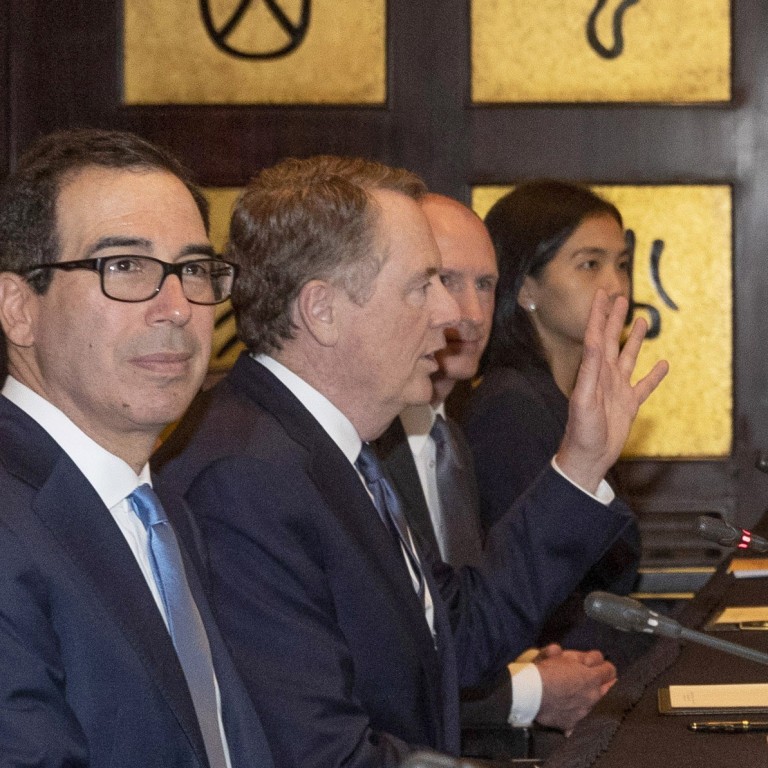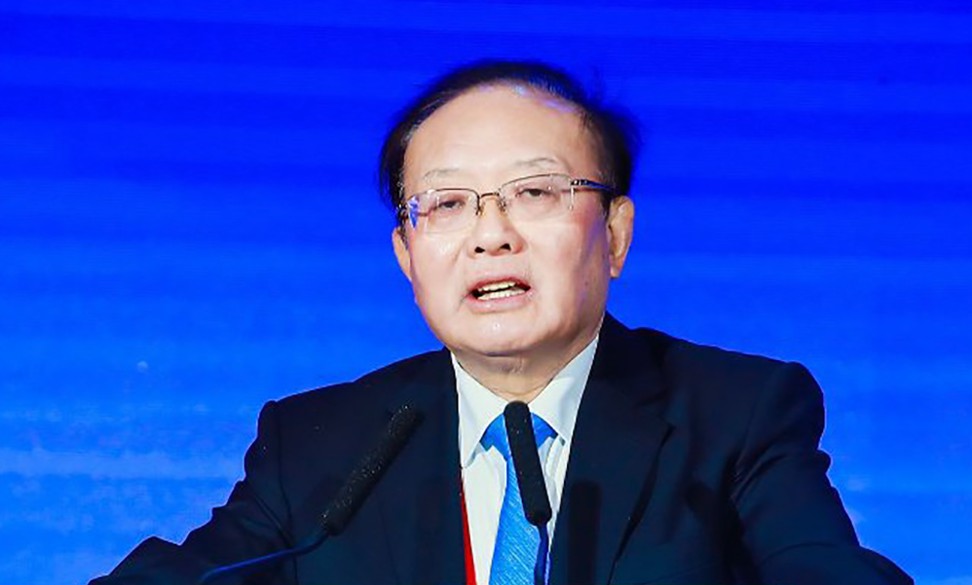
China keeps door open to September talks in Washington, despite trade war escalation
- Wei Jianguo, a former vice-minister of commerce, says the meeting is likely to happen as planned
- Source briefed by the US government said video conferences are planned to lay the groundwork for the next round of face-to-face talks
Despite the significant escalation in tensions between China and the United States this week, negotiators are still expected to convene in Washington in September for another round of trade talks, sources have said.
The next face-to-face negotiations are “likely to happen as planned”, even though the prospects of a deal are dim, according to Wei Jianguo, a former vice-minister of commerce responsible for foreign trade.
Wei’s comments to the South China Morning Post echoed those of Larry Kudlow, US President Donald Trump’s top economic adviser, who hours earlier said he still expected Chinese negotiators to visit the US for another round of talks.

“The president and our team is planning for a Chinese visit in September,” Kudlow told CNBC in an interview on Tuesday. “We’re willing to negotiate. Movement towards a good deal would be very positive and might change the tariff situation. But then again, it might not.”
China’s Ministry of Commerce did not immediately reply to a faxed request for a response to Kudlow’s comments.
However, a source who has been briefed on trade talks by the US government said that video conferences are scheduled this month, to lay the groundwork for revisiting substantive issues in a face-to-face setting in September.
“It will be interesting to see if the Chinese will still decide to travel to the US next month,” said the source, who wished not to be identified.
It will be interesting to see if the Chinese will still decide to travel to the US next month
The current Chinese vice-minister for commerce, Wang Shouwen, a pivotal member of China's trade negotiating team, has appeared at a series of public events in recent days but declined to comment on whether the talks will go ahead.
“The question goes beyond the topic of the press conference and we will have other more suitable occasions to talk with you,” Xi Yanchun, a spokeswoman for the State Council Information Office, told a reporter from Commercial Radio Hong Kong, who asked the question.
Negotiators led by Vice-Premier Liu He had been planning to fly to Washington after talks in Shanghai failed to yield a deal, but Trump’s tweet on a new tariff raised questions on whether the trip would go ahead.
If Liu were to take part in further talks, it would be viewed by some as a sign that both sides were keen to avoid an all-out trade war, despite the significant escalation in trade tensions over recent days.
In retaliation, the US Treasury Department officially labelled China a currency manipulator, a move which trade lawyers say could pave the way for additional tariffs and sanctions.
However, despite the escalation, neither side has officially withdrawn from September’s talks, although details such as the date or venue have not yet been disclosed.
Another meeting between top negotiators, including US Treasury Secretary Steven Mnuchin and US trade representative Robert Lighthizer, as well as China’s Commerce Minister Zhong Shan, may offer some relief to global markets, which were roiled by the currency dispute this week, since it would suggest that both sides are still committed to talking.
Trump and Xi met on the sidelines of the G20 leaders summit in Osaka at the end of June, agreeing to a trade war truce. However, the truce only lasted for a month, as Trump complained that China was not buying US farm products as he claimed Xi had promised in Japan.
Additional reporting by Wendy Wu

